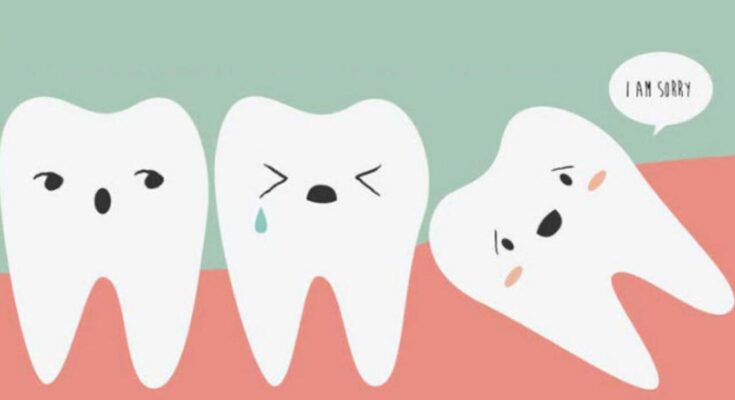Introduction
Regarding dental health, few topics generate as much discussion and concern as removing third molars, commonly known as wisdom teeth. These late-blooming teeth often cause anxiety for many individuals, as their emergence can lead to various complications. This article aims to provide a comprehensive overview of wisdom teeth, their potential issues, and the removal process.
What Are Wisdom Teeth?
Wisdom teeth are the final set of molars that typically appear in the late teens or early twenties. Most people develop four wisdom teeth, one in each corner of the mouth. However, it’s not uncommon for some individuals to have fewer or even no wisdom teeth.
The Purpose of Wisdom Teeth
Historically, wisdom teeth served a valuable purpose for our ancestors. They provided extra chewing power for processing tough, raw foods common in early human diets. As human diets evolved and cooking became widespread, the need for these additional molars diminished.
Common Issues with Wisdom Teeth
While some people never experience problems with their wisdom teeth, many others face various complications that necessitate removal. Here are some of the most common issues:
- Impaction: When there isn’t enough space in the jaw for wisdom teeth to emerge properly, they can become trapped or impacted within the jawbone.
- Crowding: As wisdom teeth try to emerge, they can push against existing teeth, causing misalignment and overcrowding.
- Infection: Partially emerged wisdom teeth can create hard-to-clean spaces where bacteria thrive, leading to infections.
- Cysts: In some cases, fluid-filled sacs called cysts can form around impacted wisdom teeth, potentially damaging the jawbone and nearby teeth.
- Decay: Due to their location at the back of the mouth, wisdom teeth are often difficult to clean properly, making them more susceptible to decay.
Signs You May Need Wisdom Teeth Removal
It’s essential to be aware of the signs that might indicate the need for wisdom teeth extraction. Some common symptoms include:
- Persistent pain or discomfort in the back of the mouth
- Swelling or tenderness in the gums around the wisdom teeth
- Difficulty opening the mouth fully
- Bad breath or an unpleasant taste in the mouth
- Visible signs of infection, such as redness or pus
- Changes in the alignment of other teeth
If you experience any of these symptoms, it’s crucial to consult with a dentist or oral surgeon for a professional evaluation.
The Extraction Process
The process of removing wisdom teeth can vary depending on the individual case. Here’s a general overview of what to expect:
1. Consultation and Examination
Your dentist or oral surgeon will conduct a thorough examination, which may include X-rays, to determine the position and condition of your wisdom teeth.
2. Preparation
Before the procedure, you’ll receive instructions on how to prepare, including any dietary restrictions and medication guidelines.
3. Anesthesia
Depending on the complexity of the extraction and your comfort level, you may receive local anesthesia, sedation, or general anesthesia.
4. Extraction
The dentist or oral surgeon will make an incision in the gum tissue to access the tooth and bone. They may need to remove some bone around the tooth or section the tooth into smaller pieces for easier removal.
5. Closing the Wound
After the tooth is removed, the site will be cleaned, and stitches may be used to close the wound.
6. Recovery
You’ll receive instructions for post-operative care, including pain management and dietary restrictions.
Recovery and Aftercare
Proper aftercare is crucial for a smooth recovery after wisdom teeth removal. Here are some key points to remember:
- Rest and avoid strenuous activities for the first few days
- Apply ice packs to reduce swelling
- Eat soft foods and avoid using straws
- Gently rinse your mouth with salt water after 24 hours
- Take prescribed medications as directed
- Avoid smoking and alcohol consumption during recovery
Potential Complications
While wisdom teeth removal is generally safe, like any surgical procedure, it carries some risks. Potential complications include:
- Dry socket (alveolar osteitis)
- Infection
- Nerve damage
- Sinus issues (for upper wisdom teeth)
It’s important to follow your dentist’s or oral surgeon’s instructions carefully to minimize these risks.
When to Seek Professional Help
If you’re experiencing persistent pain, swelling, or other concerning symptoms related to your wisdom teeth, it’s crucial to seek professional help. wisdom teeth removal Las Vegas and many other locations offer specialized services for addressing these issues. A qualified oral surgeon can assess your situation and recommend the best course of action.
Prevention and Early Detection
While you can’t prevent wisdom teeth from developing, regular dental check-ups can help detect potential issues early. Your dentist can monitor the growth and positioning of your wisdom teeth through X-rays and examinations, allowing for timely intervention if necessary.
The Impact of Wisdom Teeth on Overall Oral Health
Understanding the broader impact of wisdom teeth on your oral health is essential. Here’s a table summarizing some key points:
| Aspect | Potential Impact |
| Alignment | Can cause crowding and misalignment of other teeth |
| Hygiene | Difficult to clean, increasing risk of decay and gum disease |
| Comfort | May cause pain and discomfort, affecting eating and speaking |
| Future Health | Impacted wisdom teeth can lead to cysts or tumors if left untreated |
Making an Informed Decision
Deciding whether to remove wisdom teeth is a personal choice that should be made in consultation with a dental professional. Factors to consider include:
- Current symptoms and discomfort
- Potential future complications
- Overall oral health
- Age and healing capacity
- Personal preferences and concerns
Summing Up
Wisdom teeth removal is a standard dental procedure that can prevent numerous oral health issues. By understanding the potential problems associated with wisdom teeth and recognizing the signs that may indicate the need for removal, you can make informed decisions about your dental health. Early detection and timely intervention are crucial to maintaining a healthy, pain-free smile. If you have concerns about your wisdom teeth, don’t hesitate to consult with a dental professional who can provide personalized advice and treatment options.



